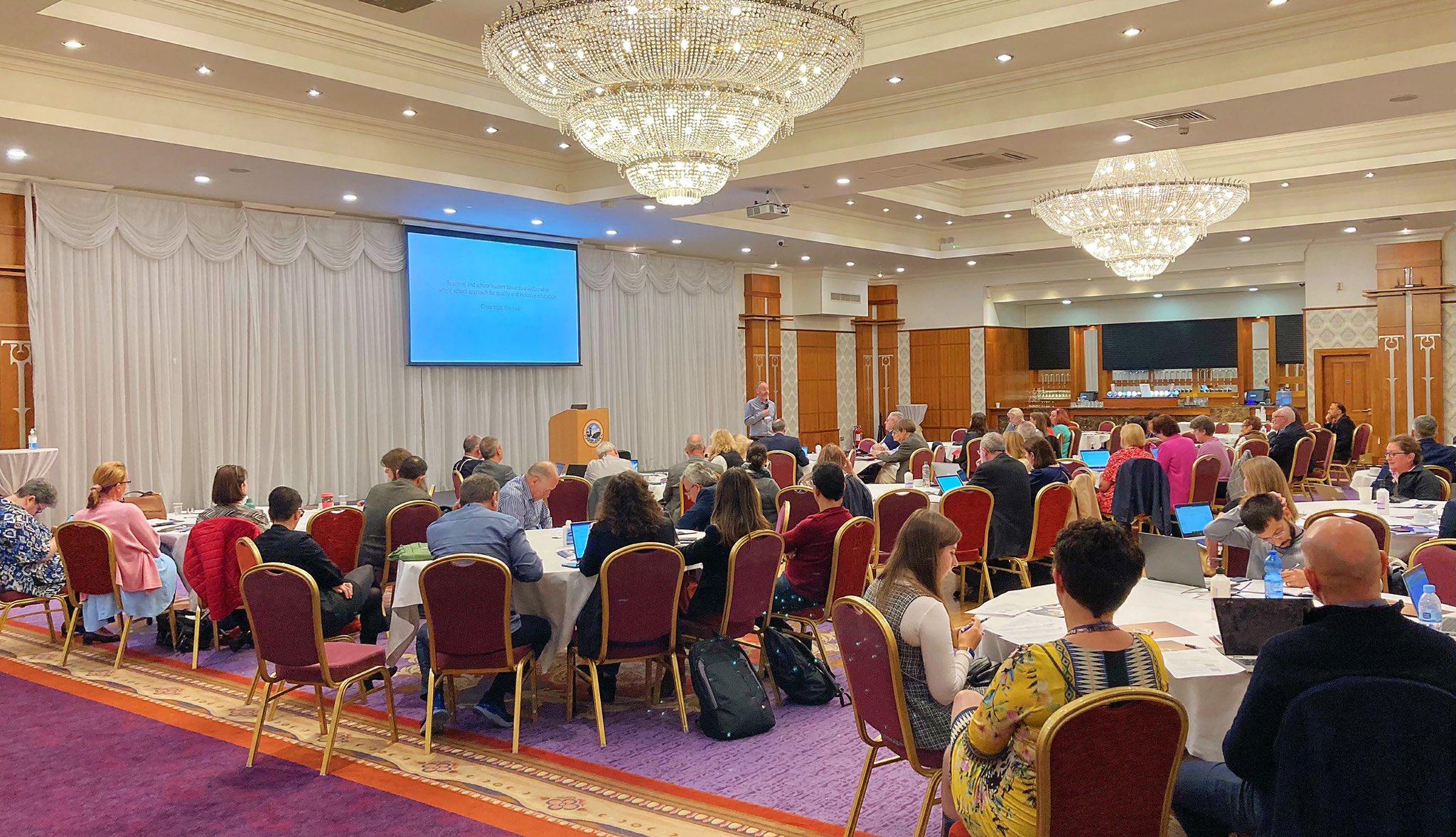Teachers and school leaders discussed collaborative school leadership and the whole school approach
Published:
The European Education Policy Network on Teachers and School Leaders (EEPN) met in Dublin on 3-4 November 2022 for its final Conference, concluding the network’s three years of activity. The Conference focused on presenting the research reports and discussion on the implementation of Policy Recommendations on supporting “teachers and school leaders towards a sustainable whole school approach for quality and inclusive education”.
At the beginning of the conference, Michael Teutsch, Head of Unit Schools and Multilingualism at the European Commission thanked the network for researching and addressing topics at the core of the EU political agenda and for sharing practices. In this regard, the inspiring example of the Irish education system was shown by Dr Harold Hislop (Chief Inspector). He illustrated the approach used in Ireland to tackle the more frequent challenges in the education sector such as the changing curricula demands, the well-being of students and teachers, inclusion and diversity. More specifically, a collaborative professional practice was implemented through a balanced approach to quality assurance. This method helped teachers to further strengthen their capacity as educators, increase the valorisation of the professional resources at the school, promote the sharing of knowledge and boost teachers’ support. The practice contributed to positive changes in the education system because the Irish education trade unions were effectively involved in the process which took over 20 years to develop. The discussions among representatives of education social partners, school leaders’ and teachers’ associations, and researchers focused on the outcomes of the project. The network discussed research studies on the following topics:
- teachers’ and school leaders’ competences and support for effective blended learning;
- a whole school support and networking to ensure school success for all;
- whole school approach for sustainable development, with a particular focus on the role and competences of school leaders to support the implementation of it;
- schools as learning communities to support teachers’ and school leaders’ professional learning and well-being.
More specifically, the participants stressed the importance of identifying possible elements and variations of blended learning in the education system and school curricula, avoiding understanding distance learning only as online learning. Representatives of ETUCE member organisations in the conference emphasized the need to identifying well blended learning so that it does not contributes to privatisation. The teachers need to prepare blended learning with clear instructions, good assessment and methodology. Therefore, implementing blended learning requires not only empowering teachers and school leaders as change agents at school, but providing them with effective support. In this regard, it is essential to guarantee an effective social dialogue with education trade unions to safeguard their well-being. Moreover, in light of the current challenges, the education trade unions underlined the importance of adopting a holistic education practice, including education for sustainable development as an interdisciplinary, participatory and interactive learning activity. Finally, in the wake of the Irish experience, the members of the project acknowledged the need to introduce a sense of community and a collaborative environment in the education system through a whole school approach.
The Policy Recommendations of the project are a source of inspiration for teachers and school leaders and call on EU institutions, the EU Member States, national, regional, and local decision-makers to enhance democratic school leadership and to support teachers and school leaders in facing the new challenges. .
More information:
EEPN Newsletter: https://educationpolicynetwork.eu/publications/year-three/